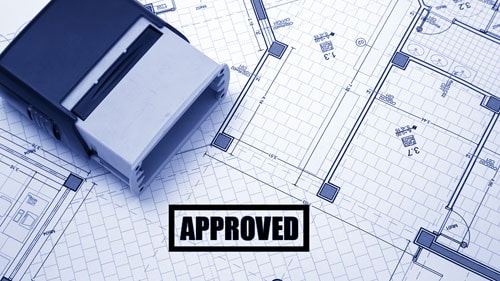Support of Excavation (SOE) is a provisionary earth retaining system prepared to control the ground for allowing a safe and effective space for the construction. In certain cases, the SOE System can function as permanent structural support. Now, let's have a look at the Excavation Checklist that supports getting SOE Permit.
To get your SOE permit approval, you must pay heed to the excavation list that includes General Task site Evaluation, Utilities, Gain Access To & Egress, Wet Conditions, Hazardous Environment, and Support System.
General Job website Inspection for SOE Authorization Approval:
Excavations, surrounding areas protective systems inspected by a capable individual every day before the start of work
A skilled individual who can choose to get rid of staff members from excavation instantly
Removal/Support of Surface Area Impediments
Staff members threatened from loose rock or soil, posturing a hazard by falling or rolling into the excavation
Hard hats are worn by staff members
Materials & equipment held up within 2 feet from the verge of the excavation
Barriers supplied at from another location situated excavations, wells, shafts & pits
Walkways & bridges over excavations, which are 4 feet or MEP permit Washington DC more in-depth are fortified with normal guardrails & toe boards
Caution vests or highly noticeable clothes offered & used by staff members exposed to public vehicular traffic
Employees require to maintain distance from cars being packed or unloaded
Warning system established & made use of while mobile devices is working near the verge of the excavation
Staff members proscribed from going under suspended loads & forbidden from dealing with the aspects of likely or benched excavations above other staff members
Energies for SOE Permit:
Energy companies communicated and the place of energies
The specific place of the marked utilities
Underground installations that are secured, supported, or gotten rid of while excavation is open
Access & Egress:
Lateral travel to means of egress not more than 25 feet in excavations 4 feet in depth
Structural ramps used by employees created by a skilled person
Structural ramps utilized for devices created by a registered professional engineer
Employees shied from collapses while getting in or leaving the excavation
Site Area:
Date, Time & the Persons Managing the Site
Soil Category with the Depth & Width of Excavation
Type Of Protective System Used
Wet Issues:
Safety measures for securing staff members from water build-up
Water removal equipment kept an eye on by a proficient person
Surface area water/runoff diverted or controlled to prevent accumulation in the excavation
Assessments made after every rainstorm or other danger increasing incident
Examining the Hazardous Environment for SOE License:
Checking the Atmosphere within the excavation where there is a likelihood of an oxygen shortage, ignitable or other harmful impurity revealing employees to a danger
Appropriate precautions for securing workers exposure an environment incorporating less than 19.5% oxygen other dangerous environments
Offering ventilation to prevent staff members exposure to an environment consisting of combustible gas over 10% of the lower explosive limitation of the gas
Testing carried out to ensure the security of the atmosphere
Emergency devices like breathing apparatus, safety belt and lifeline and basket stretcher where dangerous environments exist
Training workers to use individual protective & other rescue devices
Safety harness lifeline while entering deep confined excavations
Assistance Systems for Acquiring SOE Authorization
Products & equipment for support systems based upon soil analysis, trench depth & expected loads
Inspecting materials & devices utilized for protective systems to see whether they remain in good condition
Getting rid of materials & devices if they are not in good conditions
Damaged materials devices used protective systems to be examined by a signed up professional engineer after repairs prior to putting back into service
Setup of protective systems without discovering staffs to the dangers of collapses or danger of getting blocked by materials/equipment

Members of support group securely attached to avoid failure
Ensure that the support group offer stability to the nearby structures, roadway & walls
Examining the back filling progress with elimination of the support group
Material excavation to a level not more than 2 feet below the bottom of support group only if system is intended to support loads determined for complete depth
Putting the guard system to prevent lateral motion
To understand more:
If you are stuck to your DCRA building authorization in Washington DC, select a permit speeding up company for handling building authorization applications for brand-new building and construction and remodellings. Tejjy Inc. facilitates budget friendly license accelerating services in Washington DC with no delay. Call at 202-465-4830 or send out mail at [email protected] for your authorization service approval.
Tejjy Inc.-- One of the competent Load bearing wall elimination authorization, cooking area remodeling license illustrations, Home renovation permit drawings, Basement Underpinning drawings and permit, Apartment restoration authorization drawings, kitchen area remodeling permit drawings, house remodelling authorization, domestic construction permit, Basement Restoration authorization, maintaining wall permit, home remodeling license illustrations, house renovating layout, Building permit dcra, Construction permit illustrations, public area permit, load bearing wall removal permit, deck construction authorization, restroom addition license,
MEP authorization, Mechanical license drawings, Electrical permit illustrations firm in Washington DC, Baltimore, VA and MD area.